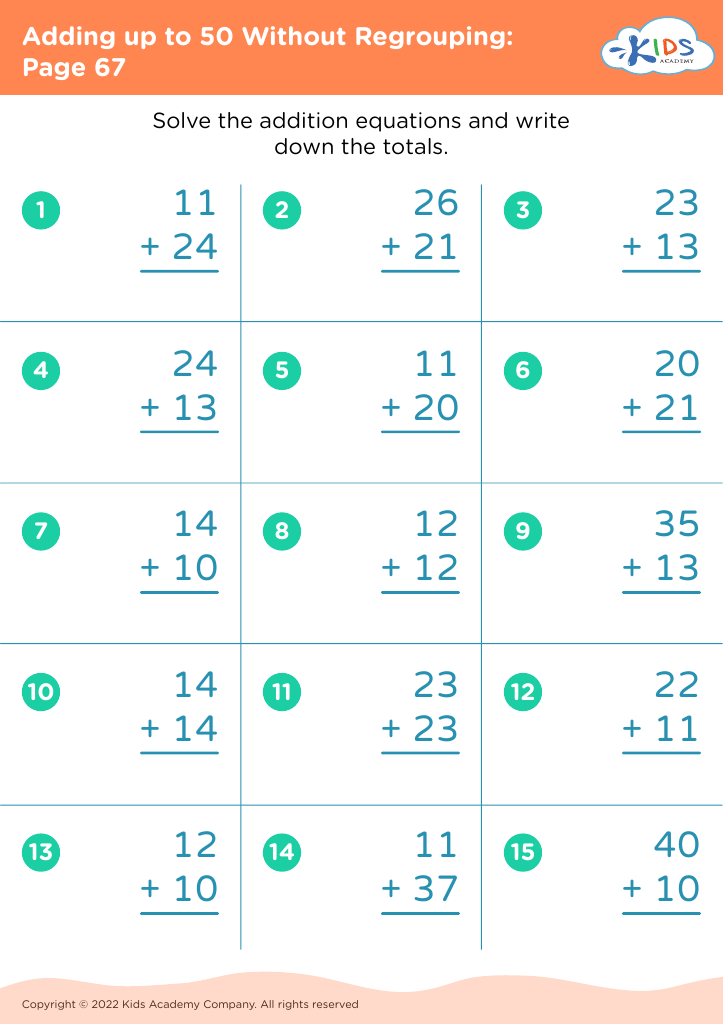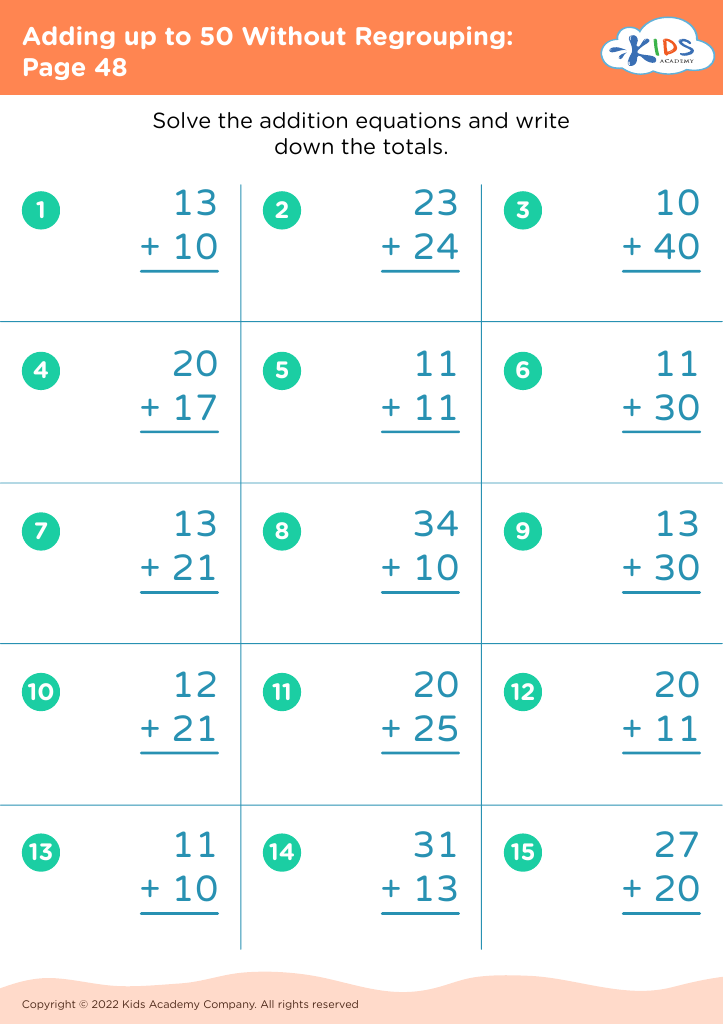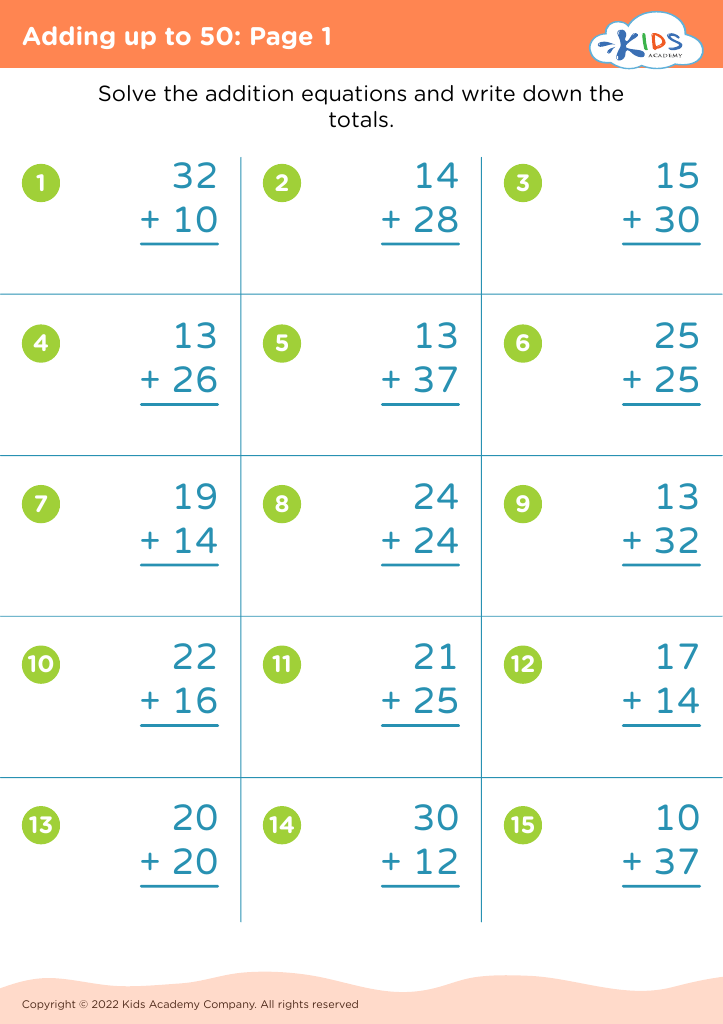Basic Addition Adding up to 50 Worksheets for Ages 3-7
7 filtered results
-
From - To
Discover our engaging "Basic Addition Adding up to 50 Worksheets," designed specifically for children ages 3-7. These fun and interactive worksheets make learning addition enjoyable, helping kids master essential math skills. Each worksheet features colorful illustrations and engaging exercises tailored to develop counting, number recognition, and problem-solving abilities. With a focus on adding numbers up to 50, children will build a strong mathematical foundation while boosting their confidence. Perfect for teachers, parents, and homeschooling, these worksheets are ideal for both classroom activities and at-home practice. Start your child's math journey today and watch them excel in basic addition skills!
Basic addition skills are fundamental for children ages 3-7, laying the groundwork for future mathematical understanding. At this age, children are naturally curious and eager to learn, making it an ideal time to introduce and reinforce addition concepts, particularly adding numbers up to 50. Mastering basic addition promotes critical thinking and problem-solving skills, allowing children to approach more complex math concepts with confidence.
Additionally, early proficiency in addition supports cognitive development and improves children's understanding of everyday situations, such as counting objects, solving simple problems, and making decisions based on numerical information. Engaging in addition activities also fosters social skills as children often work together in classrooms or at home while exploring math games, contributing to a collaborative learning environment.
Moreover, instilling a love for math in early childhood can lead to a positive attitude toward mathematics in later years. Parents and teachers play crucial roles in creating supportive learning experiences, showcasing the relevance of math in daily life and encouraging persistence. Therefore, prioritizing basic addition skills for young learners is essential in building a strong mathematical foundation that prepares them for future educational success and informs their everyday interactions with numbers.






















